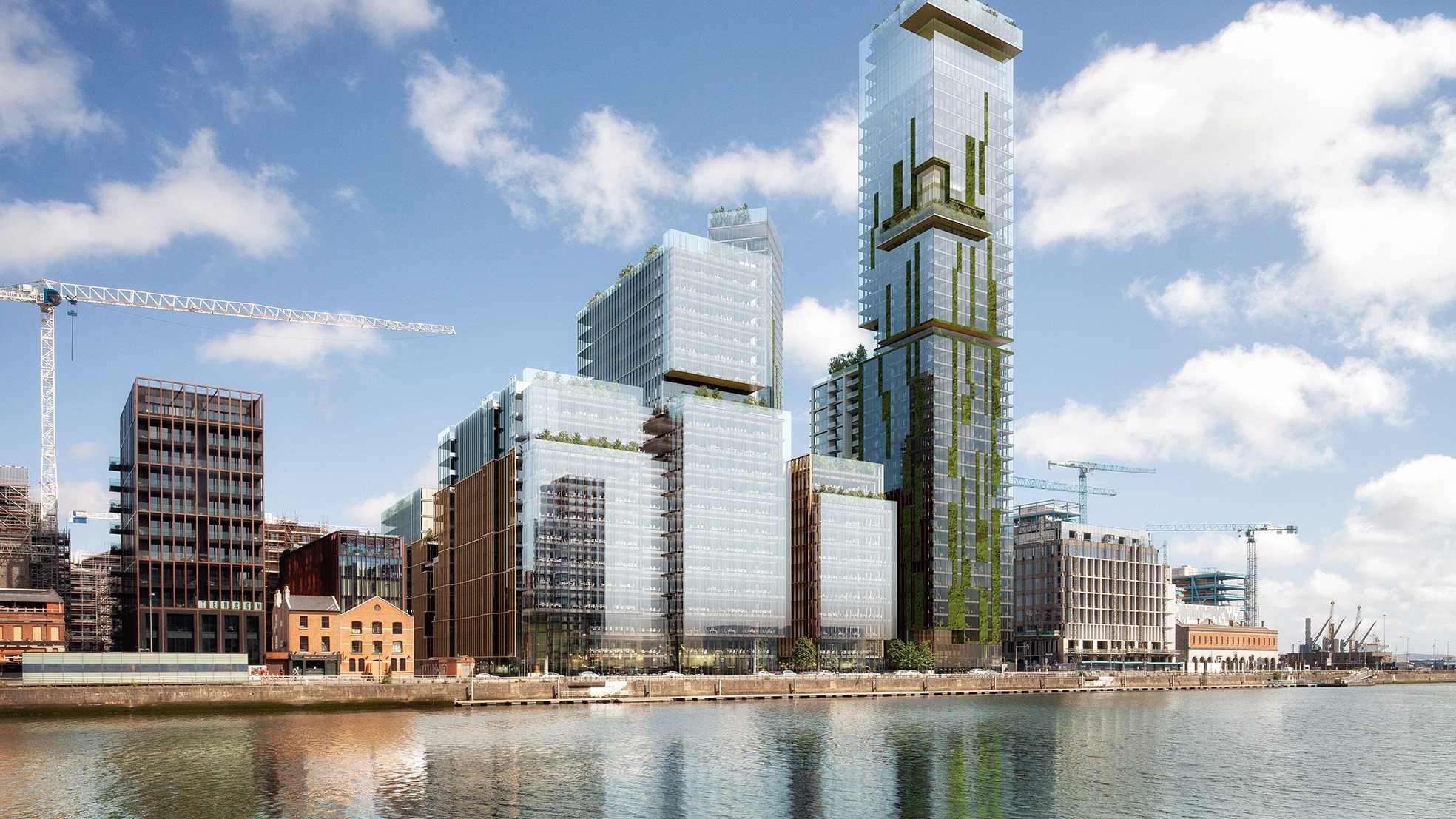Opinion: Stop Reacting, Start Rebuilding – Dublin Needs a Post-Tariff Strategy NOW.
Tariffs are a symptom, not the disease. Relying on short-term fixes ignores the need for deep structural change. Dublin must proactively build resilience for a tougher global era.
Posted by
 EasyOffer Team
EasyOffer TeamRelated reading
Government Misses 2024 Social Housing Targets
Analysis of Ireland's missed social housing targets for 2024 and its implications for the property market, including detailed insights into government responses and market effects.
From D2 to A2: A Complete Guide to Home Renovation Costs in Ireland 2025
Detailed breakdown of costs and timelines for upgrading your Irish home's BER rating, including insulation, solar panels, and windows based on real 2025 data.
Irish Property Market 2025: Impact of Multinational Investment
Analyze how multinational investment is shaping Ireland's property market in 2025, with insights on growth trends and market dynamics amidst new economic pressures.

Beyond Firefighting: Dublin Needs a Blueprint for a Harsher World
The immediate response to the US tariff shock – calls for worker support, emergency meetings, diplomatic outreach – is understandable. It's necessary firefighting. But let's be brutally honest: it's not enough. Treating these tariffs as a temporary storm we can simply weather with short-term fixes is dangerously short-sighted.
These tariffs, and the political climate that spawned them, might represent a fundamental shift in the global economic order – a move away from the hyper-globalization that Ireland masterfully exploited. Dublin needs to stop just reacting and start proactively rebuilding its economic strategy for a potentially tougher, less predictable future. We need a blueprint, not just a bucket brigade.
The Illusion of Temporary Measures
Short-time work schemes and industry bailouts can ease immediate pain, but they don't address the root vulnerability. As the Taoiseach himself reportedly acknowledged (per Ibec talks), this may demand deeper "structural change", unlike the temporary disruptions of COVID or Brexit's initial phases. These tariffs could be the leading edge of sustained protectionism or geopolitical friction.
Hot Take: Constantly reacting with short-term supports risks creating a dependency culture and delaying the necessary, albeit painful, adaptations required to compete in a changed world. We need strategic investment, not just subsidies.
Waiting for the "dust to settle" is a gamble Ireland can't afford. The 'normal' we knew might not return. Proactive preparation must start now. When your house is on fire, you don't sit around hoping for rain – you grab a hose and start planning to rebuild stronger.
Building Blocks for a Future-Proof Dublin
What does proactive preparation – strategic rebuilding – look like? It's about reducing vulnerabilities and fostering innate strengths:
- Radical Diversification: Not just tinkering. A serious national effort to cultivate new export markets (Asia, South America, intra-EU) and, crucially, bolster indigenous Irish businesses (SMEs) to lessen the dangerous over-reliance on decisions made in US MNE boardrooms.
- Deepening Domestic Linkages: Moving beyond MNEs operating in silos. Foster genuine R&D collaboration, supply chain integration, and knowledge transfer between multinationals and local firms, creating a more robust, interconnected domestic ecosystem (an IMF recommendation).
- Investing in Adaptable People: Massively scaling up targeted reskilling and lifelong learning programs. Workers potentially displaced from vulnerable sectors need clear pathways to growth areas like the green transition, digital transformation, high-value manufacturing.
- Infrastructure for Autonomy: Prioritizing investment in energy independence (renewables), digital connectivity, and efficient transport not just for growth, but for national resilience against external supply shocks or geopolitical pressures.
- Fiscal Fortress: Maintaining prudent public finances isn't just good housekeeping; it's building a war chest to fund necessary transitions and withstand future economic shocks without crippling debt.
Hot Take: We've spent decades building Ireland as the perfect bridge between the US and EU. But what if that bridge is becoming a precarious place to stand? Perhaps it's time to build something entirely new.
Uncertainty calls for data-driven decisions
In times of economic restructuring, understand your property's true market position. Our AI analyzes thousands of local sales to give you an accurate valuation in seconds.
Get Your Instant Property valuation →A Call to Action: Seize the Moment
This tariff crisis, painful as it is, is also an opportunity – a forced moment of reflection. Dublin and Ireland can choose to cling to the wreckage of the old model, hoping for a return to calmer waters, or they can seize this moment to start building a stronger, more resilient, more self-reliant economic future. The latter path is harder, demanding bold vision and long-term commitment. But in an increasingly turbulent world, it's the only path that offers genuine security. Let the rebuilding begin.
